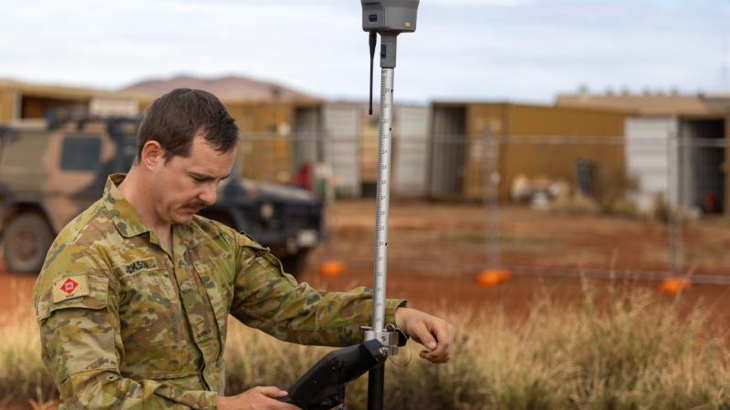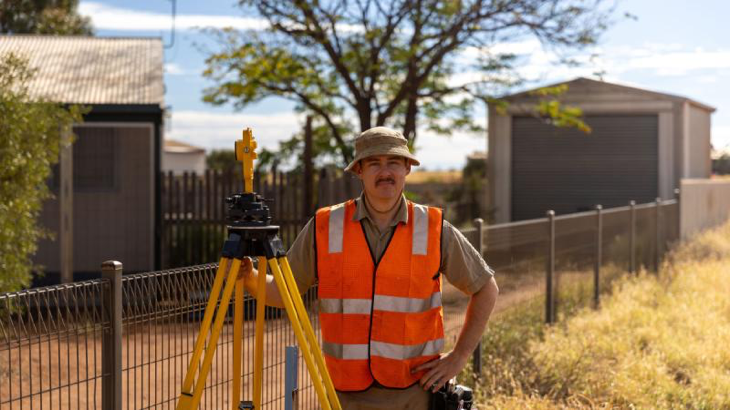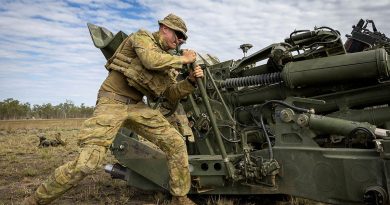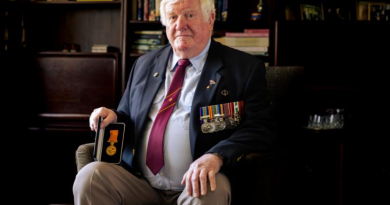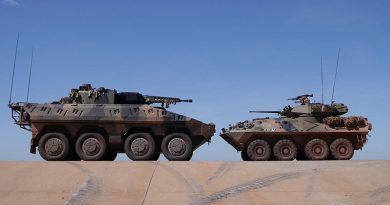Army surveyors shoot lasers

Shooting lasers is all in a day’s work for the small cohort of Army surveyors.
CAPTION: Australian Army surveyor Sapper Shaun Jackson from 6th Engineer Support Regiment completes a surveying task as part of the 2024 Army Aboriginal Community Assistance Programme in Amata, SA. Story by Flight Lieutenant Marina Power. Photo by Private Jack Hayes.
Enjoying a broad range of tasks in a highly varied job role, a surveyor in the Army is equipped with all the tools they need for a diverse range of projects.
While civilian surveyors may develop a specialisation like construction, hydrographical or land surveying, ADF surveyors can undertake all aspects of their trade.
Surveyors in the ADF can also choose between two methods of taking measurements and showing data: a GPS and a 3D scanning total station that uses lasers to measure angles and distances. Many civilian surveyors only have access to one of these methods.
Sapper Shaun Jackson is an Army surveyor with 6th Engineer Support Regiment.
Coming from a public school background and growing up in Penrith, Western Sydney, he was steered towards the trades, initially starting his ADF career as a combat engineer.
Sapper Jackson now believes surveying is an indispensable expertise within Army; and in the ADF, he has access to some of the best equipment.
“A construction company would usually have lasers because they are more accurate and compliant to the Australian Standard, while land surveyors would most likely use GPS because they are doing huge plots of land,” he said.
“We use both. We are very well resourced and are a bit spoilt in that regard.”
Surveyors are also turning more to drones and other emerging technologies.
At the forefront of this innovation is Army’s 12th Chief Engineer Works, spearheading trials with new LiDAR drone technology.
As this capability becomes operational, Army will have access to cutting-edge drones that will revolutionise the way surveyors work in the ADF.
Sapper Jackson has been an Army surveyor for 1.5 years, following his Defence-funded two-year period of study at TAFE Wollongong, NSW.
He works as part of a small team of just eight full-time and two part-time surveyors, believing his role offers the perfect balance of work in an office and out in the field.
“It’s almost 50/50 being out in the field capturing data and being in the office processing that data to deliver to a client,” Sapper Jackson said.
“It’s interesting, diverse and challenging work, and I get to work alongside some great people.”
In the ADF, a surveyor is sometimes referred to as the ‘middle man between the building and design’, making sure it all fits together.
“We are there at the start and at the end, and throughout the whole construction process. We make sure everything is where it should be and give the tick of approval,” he said.
Sapper Jackson is currently helping deliver community-driven infrastructure projects during the 2024 Army Aboriginal Community Assistance Program (AACAP) in Amata, South Australia.
CAPTION: Australian Army surveyor Sapper Shaun Jackson from 6th Engineer Support Regiment completes a surveying task as part of the 2024 Army Aboriginal Community Assistance Programme in Amata, SA.
.
.

.
.

